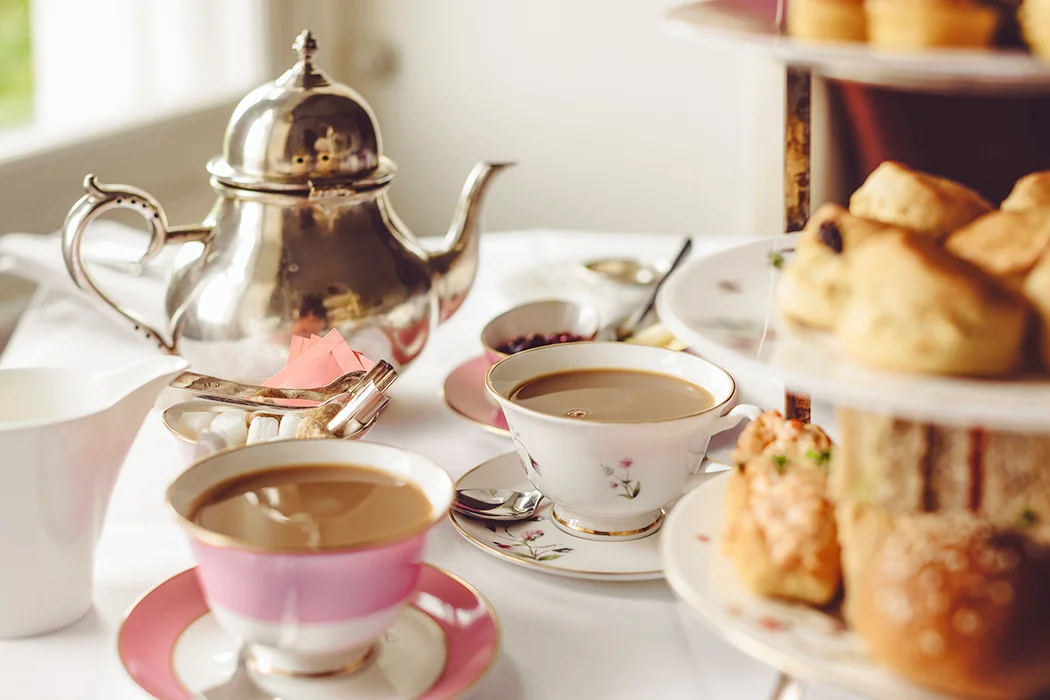ADS
An internet uproar ensued when a US scientist proposed salting tea. Why, however, does the proper preparation of tea seem to vex so many people, particularly in the United Kingdom?
The foundation of many British people’s day is a good cup of tea. Whether you add milk to your tea before or after steeping it is a notoriously delicate topic, and the exact proportions of each ingredient may vary greatly from person to person when it comes to making the ideal cup of joe. The suggestion that a little of salt may enhance tea in a new book written by an American scientist last week, however, ignited a wave of internet indignation. Adding salt to Britain’s national drink is not official United States policy, as the US Embassy wanted to assure the good people of the UK on X, the platform previously known as Twitter, when the storm in this tea kettle became so frothy. “And it never was and never will be.”
The dispute was covered in a variety of humorous and engaging news pieces. Even after conducting taste tests, the authors and editors at Serious Eats came to the same conclusion as scientist Michelle Francl, author of Steeped: The Chemistry of Tea. It is true that a pinch of salt added to a pot of tea may alleviate some of its bitterness. Why, then, is the proper preparation of tea such a touchy subject for so many Britons?
Looking into the history of tea in Britain reveals that the process of preparing the drink has changed several times. Upon arrival in England in the 17th century, tea was traditionally consumed without milk. Samuel Pepys, an English chronicler, drank his first cup of tea on a Tuesday in September 1660. Samuel does not mention tea again for seven years, and the only reason he does is when he discovers his wife making it as a remedy. The regular inclusion of milk did not occur until much later, and sugar was already a popular ingredient.
According to historian Pen Vogler, author of Scoff: A History of Food and Class in Britain, at the same time that individuals were trying out different methods to make this infusion, government measures were helping to solidify tea as an everyday requirement for many Britons. A dramatic shift in tea taxes occurred in the 18th century, making the beverage affordable for the masses.
“The East India Company was so embedded in the government, it became like the banks in 2008: too big to fail,” explains Vogler. “And what it was basically dealing in was tea, among other things.” With the 1784 Commutation Act, which reduced tariffs on tea from 119% to 12.5%, the government complied with Richard Twining’s request that the prime minister (William Pitt the Younger) increase demand for Chinese tea.

As a result, individuals of various socioeconomic backgrounds started consuming tea at random. Ultimately, this had an impact much beyond the boundaries of the British Isles. Economist Francisca Antman claims that the widespread use of tea in late 18th-century England may have significantly increased life expectancy due to the antimicrobial properties of boiling water used to make black tea. British plantation proprietors watched the harvest when a Scottish botanist’s stolen Chinese tea plants thrived in British-ruled India. Tea drinking was a method for these colonists to maintain themselves, and “it started to be seen as an English thing,” explains Vogler. “It gave us a right to tea.”
According to Markman Ellis, a co-author of Empire of Tea: The Asian Leaf That Conquered the globe and a professor of 18th-century studies at Queen Mary University of London, almost all tea marketed abroad passed via London on its journey to the rest of the globe. Plenty of people in China and India were drinking tea that had been produced locally, while everyone else was drinking tea that had been funneled via London.
A certain mythology developed around tea based on these events, suggesting that the beverage had intrinsically British qualities. Even though it’s common knowledge (thanks to Google) that English Breakfast Tea (or whatever you call it) is often cultivated hundreds of miles away from England, the sentiment remains. A small fraction of the world’s tea is brewed according to British methods, with all their regional and class-linked variations. For example, Chinese tea is brewed according to a wide range of epicurean and proletarian strategies, and masala chai from the Indian subcontinent is brewed differently than the British version.
The Chinese drink tea from little cups, whereas the Japanese whisk it, according to culinary historian Helen Saberi’s Tea: A Global History. Iced is the American way to drink it. Butter is added by the Tibetans. A squeeze of lemon is traditional for Russian cuisine. In North Africa, mint is added. Cardamom is a popular Afghan spice. The world’s legitimate tea preparations list is endless.
However, tea has a special place in the hearts of many Britons. “By drinking tea, Britons were participating in a process of national myth-making,” remarks Richard Coulton, a senior professor in English at Queen Mary University of London and one of Ellis’s co-authors of Empire of Tea. “I think that when Britons today get excitable about the perfect cup of tea, some of what is going on is a latent cultural desire to hold onto that sense of wanting to experience and articulate global mastery, or at least a nostalgia for stories of that glorious past.”
The fact that tea is, well, ubiquitous makes it a popular topic of conversation. “Tea breaks up our day,” remarks Vogler. “It’s something that’s a really important part of your daily rhythm – it’s like your commute.”
“But it’s also partly all the things we’ve been talking about: the over-identification with tea, for all those historic reasons,” she maintains. And I say this from the position of total tea nirvana. Tea is perfect for me.





